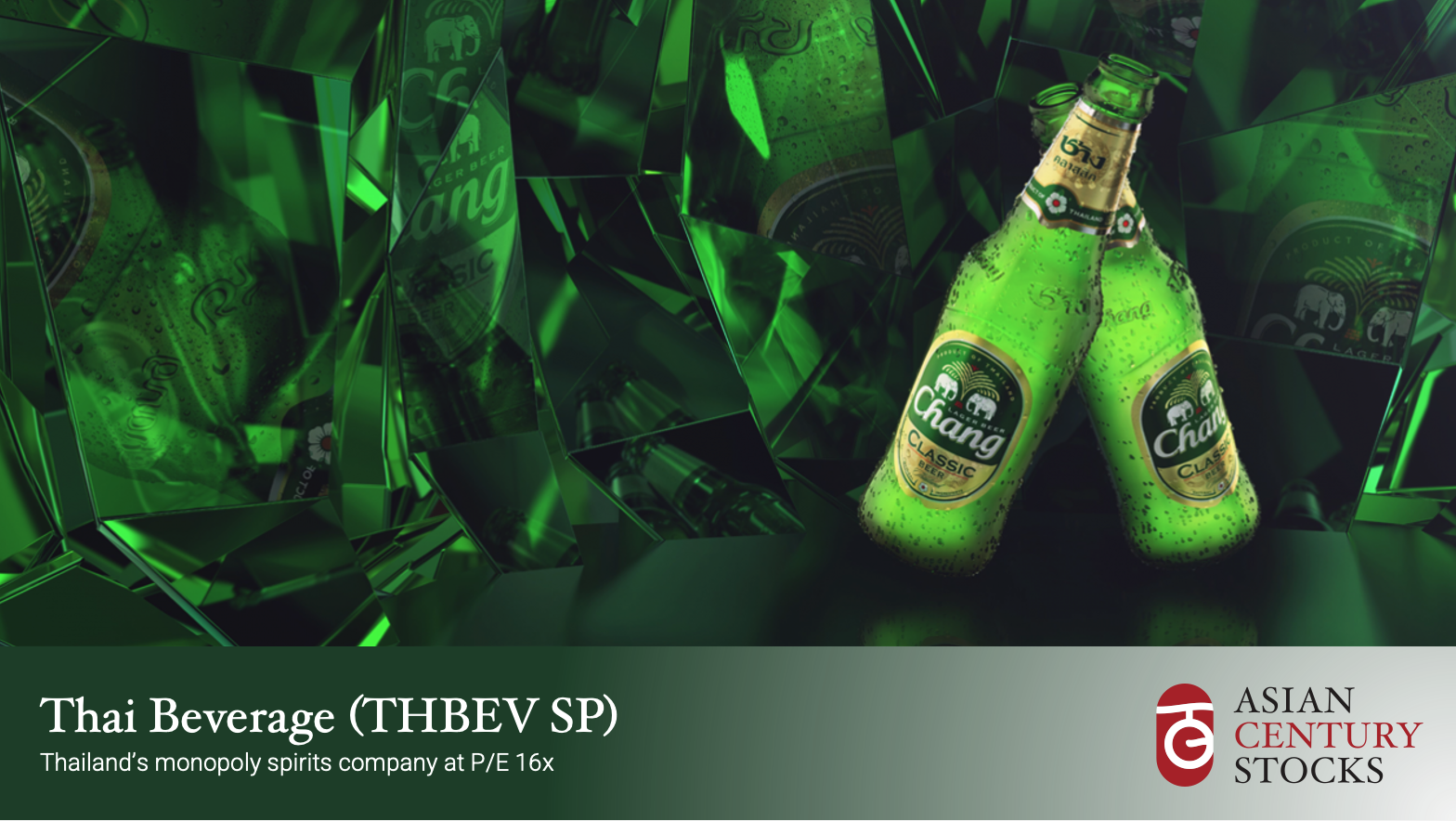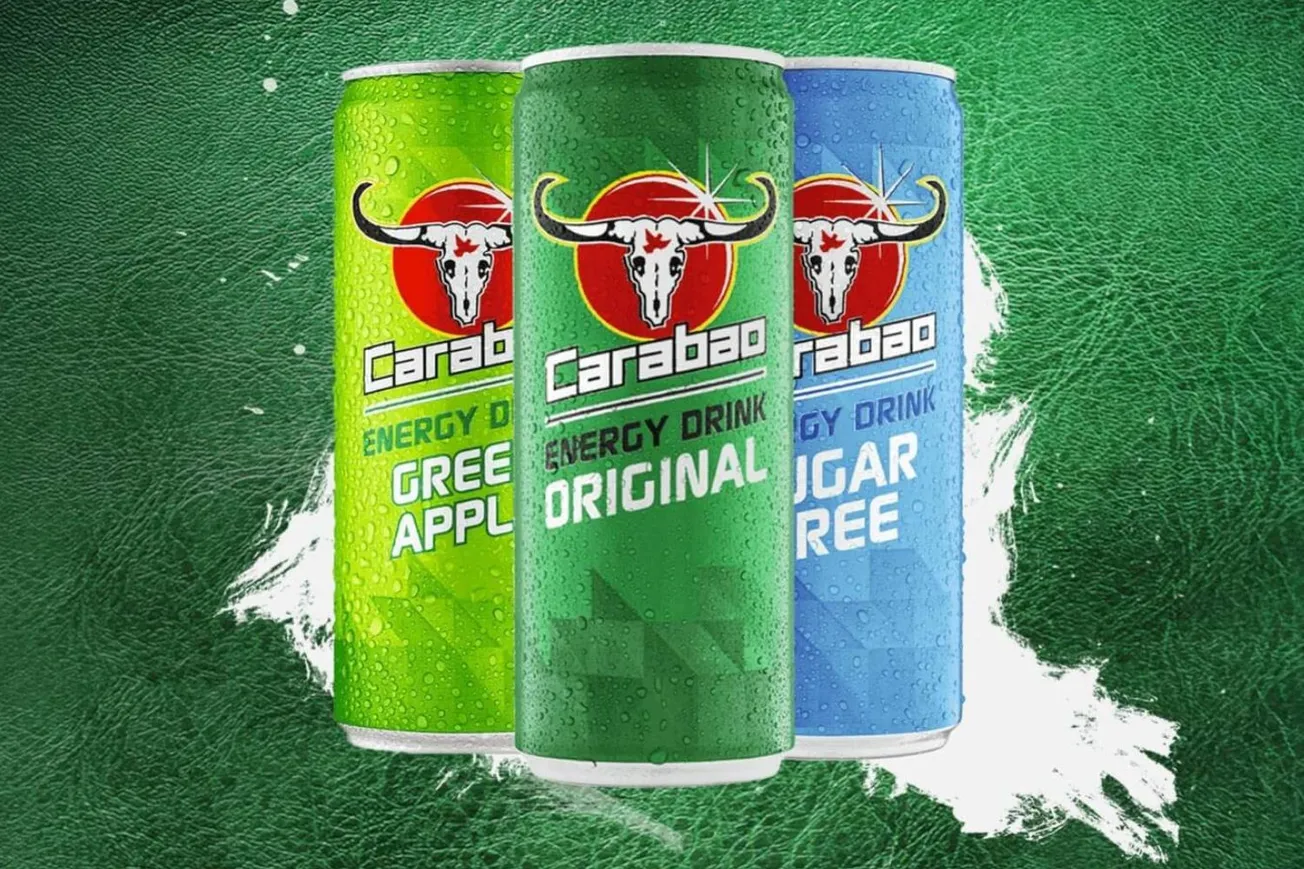Table of Contents
Disclaimer: Asian Century Stocks uses information sources believed to be reliable, but their accuracy cannot be guaranteed. The information contained in this publication is not intended to constitute individual investment advice and is not designed to meet your personal financial situation. The opinions expressed in such publications are those of the publisher and are subject to change without notice. You are advised to discuss your investment options with your financial advisers, including whether any investment is suitable for your specific needs. From time to time, I may have positions in the securities covered in the articles on this website. Full disclosure: I do not hold a position in Thai Beverage at the time of publishing this article. Note however that this is disclosure and not a recommendation to buy or sell.

Thai Beverage (THBEV SP) (“ThaiBev”) is Thailand’s leading alcoholic beverage company. It dominates the Thai spirits segment where it has a ~90% market share and ownership of key brands such as “Ruang Khao” and “SangSom”. And it also owns the beer brand “Chang”, which means elephant in Thai.
ThaiBev was created by entrepreneur Charoen Sirivadhanabhakdi, now Thailand’s fourth wealthiest man. He was born to a Thai-Chinese family and started working at age 9, selling raw materials to state-owned distilleries. Through government contacts, he obtained a license to start his own distillery and eventually acquired the majority of Thailand’s distilleries that had previously been under state control.
The reason why the company dominates the Thai spirits market is that regulation protects Thai incumbents. Foreign companies such as Diageo need to pay import duties on top of an already-high spirits tax of ~51%. Foreign ownership limits, size restrictions, and environmental regulations make it difficult to set up new distilleries.
ThaiBev also has a distribution network that reaches over 400,000 points of sale - down to the smallest village. Since many of ThaiBev’s customers are blue-collar workers such as farmers, it is crucial to have access to the mom & pop stores that sell to such individuals. And the spirits that ThaiBev sells to them are not expensive. A 700ml bottle of Ruang Khao, which can be likened to a Thai version of Korean soju, only costs USD 3.
The Thai spirits market is slow-growing, and the opportunities for reinvestment are limited. So instead of growing domestically, the company has adopted the strategy of using its strong domestic cash flows to expand overseas. It now has an explicit goal of becoming a leading alcoholic beverages producer in Southeast Asia. It’s attempting to achieve this goal through cross-border M&A, financed by both internal cash flows and debt.
Several of ThaiBev’s recent acquisitions have been expensive. It paid 35x EBITDA for a 54% stake in Vietnamese beer producer SABECO. It also paid high multiples for most of its shares in Singapore-based beverage producer Fraser & Neave. Such acquisitions have caused group-wide return on equity to fall from 20%+ to a mid-teens percentage today.
ThaiBev might have upside to its margins, with only 8% operating margins in its beer segment. The non-alcoholic beverages segment has only recently become profitable due to its carbonated water business remaining sub-scale in the years after its launch in 2012.
ThaiBev’s beer business has been hurt by COVID-19. The lack of inbound tourism to Thailand and the closure of pubs and bars led to a drop in overall beer sales.
The near-term P/E multiple is around 16x. With an impending recovery in beer sales across its key markets of Thailand and Vietnam, it seems likely that the P/E ratio will come down to around 13x by 2025. Historically, the stock has traded at 16x and today, peer group multiples are closer to 20x.
A sum of the parts valuation using peer group multiples and market values for listed subsidiaries yields an intrinsic value of SG$1.0/share - higher than the current SG$0.7 share price.
Other than recovery from COVID-19, another catalyst could be the planned separate listing of ThaiBev’s beer business in Singapore. The company is also considering disposing of its stakes in Fraser & Neaves and Frasers Property Limited.
One critical risk is the debt burden, which is high at close to 5x EBITDA. If interest rates rise or the Vietnamese Dong devalues against the Thai Baht, the debt burden may increase further. Right now, ThaiBev has no problems servicing its debt and its bonds remain investment grade.
In any case, ThaiBev remains a virtual monopoly in the Thai spirits market and trades at a surprisingly low multiple of 16x P/E. Once tourism to Thailand returns, I expect both the Thai Baht to appreciate and ThaiBev’s beer segment to recover. Perhaps we might then see a return to 20x+ P/E multiples.
Please click the button below to access the full PowerPoint presentation:








